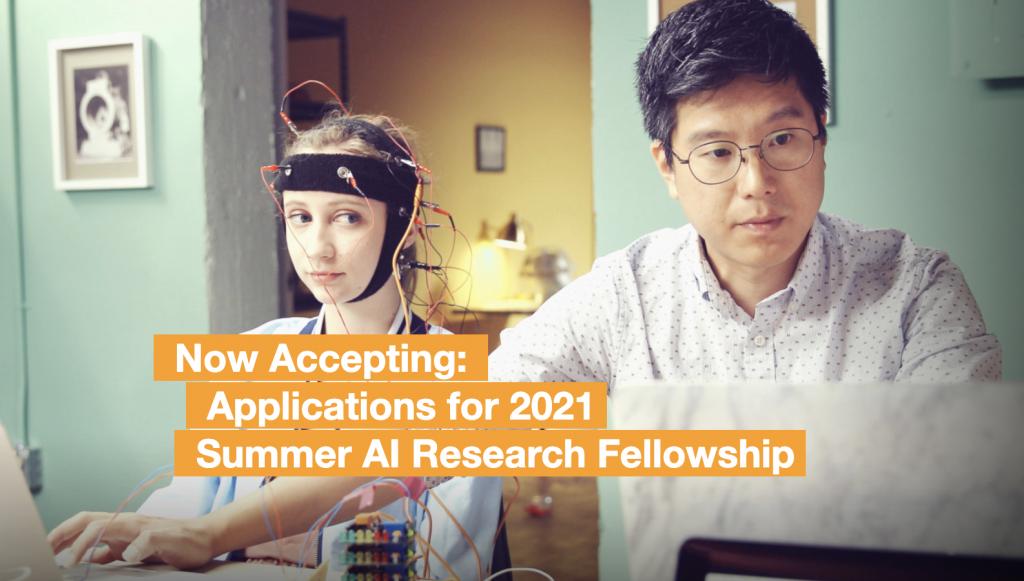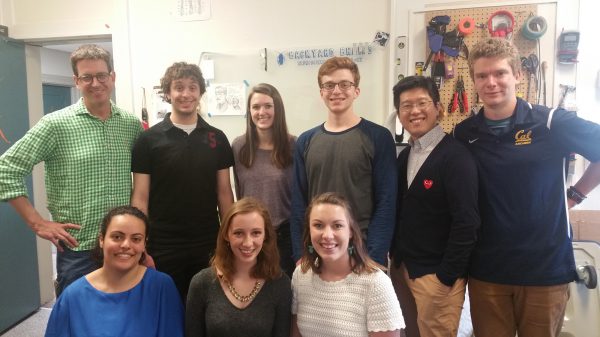-
 ExperimentMove aside, air guitars! Thanks to one of our latest projects, it is now possible to air-conduct music so that it actually changes in tempo and volume as you move your arms. This so-called neuro:baton is just one of 12 cool projects being developed on our 2024 Summer Research Fellowship that’s firing up as we speak. […]
ExperimentMove aside, air guitars! Thanks to one of our latest projects, it is now possible to air-conduct music so that it actually changes in tempo and volume as you move your arms. This so-called neuro:baton is just one of 12 cool projects being developed on our 2024 Summer Research Fellowship that’s firing up as we speak. […] -
 FellowshipCall for HS Teachers and Undergraduates in Biology, Engineering and the Arts: Calling all AI and neuroscience nerds (AND nerd wannabes): We are back! After taking a hiatus due to a global pandemic, we are proud to announce that we are returning with a very special guest star: TinyML! Tiny Machine Learning (TinyML) is a deep learning toolkit […]
FellowshipCall for HS Teachers and Undergraduates in Biology, Engineering and the Arts: Calling all AI and neuroscience nerds (AND nerd wannabes): We are back! After taking a hiatus due to a global pandemic, we are proud to announce that we are returning with a very special guest star: TinyML! Tiny Machine Learning (TinyML) is a deep learning toolkit […] -
 EducationIt’s early on a warm Ann Arbor morning and the office is buzzing with excitement! Our Summer 2017 research fellows are here! Today, our fellows are getting to know the staff and space at Backyard Brains, but more importantly, they’re planning, because for the next ten weeks they will be working on neuroscience and engineering […]
EducationIt’s early on a warm Ann Arbor morning and the office is buzzing with excitement! Our Summer 2017 research fellows are here! Today, our fellows are getting to know the staff and space at Backyard Brains, but more importantly, they’re planning, because for the next ten weeks they will be working on neuroscience and engineering […]